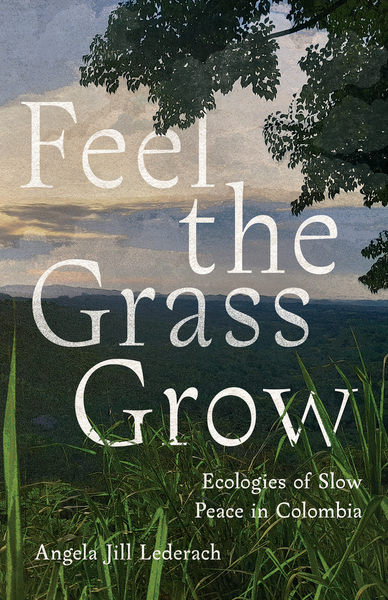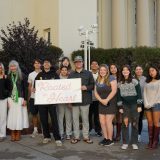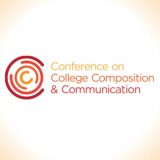
Faculty Book: Dr. Angela Lederach’s Latest Book and Being Awarded a Peace Emerging Scholar
April 22, 2024
 Dr. Angela Lederach (Peace Studies) completed decades of ethnographic and participatory research for her recent publication Feel the Grass Grow: Ecologies of Slow Peace in Colombia which offers insight into the politics of peacebuilding in Colombia. The book critically analyzes the peace accords signed between the Colombian government and the Revolutionary Armed Forces of Colombia in 2016 as implementation unfolded in the prioritized territory of Montes de María.
Dr. Angela Lederach (Peace Studies) completed decades of ethnographic and participatory research for her recent publication Feel the Grass Grow: Ecologies of Slow Peace in Colombia which offers insight into the politics of peacebuilding in Colombia. The book critically analyzes the peace accords signed between the Colombian government and the Revolutionary Armed Forces of Colombia in 2016 as implementation unfolded in the prioritized territory of Montes de María.
Dr. Lederach examined the multiple and contested approaches to peace found in Montes de María, grounding her study around the concept “paz sin prisa” – peace without hurry – or what she calls “slow peace” – to unearth the social, ecological, and multigenerational practices that animate and sustain the work of grassroots peacebuilders in the wake of war.
The Voice of Wilkinson sat down with Dr. Lederach to discuss the book.
Voice of Wilkinson: I understand you worked with leaders in Montes de María during your research. What was that like?
Angela Lederach: Campesino social leaders [mediators between their communities and external actors, like state authorities, multinational companies, or illegal armed groups, who yield some combination of high political, economic, and military power] collaborated with me to help design the initial questions and focus, engaged in collective deliberation about what we were learning throughout the process, and provided critical peer review on the initial drafts of the book. The research was shaped around the territorial priorities and desires identified by a coalition of social movements in Montes de María aimed at deepening justice and peace in the region.
VoW: Let’s talk about participatory research and what that entails.
AL: I learned a lot from engaging in collaborative methods. For example, I had not included attention to environmental justice or intergenerational relations in the initial framework for my research, both of which are fundamental pillars for how peace is envisioned and practiced in Montes de María. I had the privilege of learning what it means to engage in participatory action research (PAR) with campesino elders who developed the methodology in the 1970s alongside sociologist Orlando Fals Borda. Understanding the history of participatory action research as that relates to movement-building in Colombia and being grafted into the genealogy through this work has fundamentally changed how I think about research and knowledge production as intimately tied to cultivating a more just world.
VoW: What did this research teach you?
AL: I was surprised by the significant power of intergenerational spaces – where young people who were forcibly displaced during the war were able to cultivate a sense of belonging, connection to place, and sense of self through community peacebuilding. I was also surprised by the level of harm that international and state-led peace interventions caused when they did not engage in sustained collaboration with local organizations.
VoW: Switching gears – congratulations on the Peace Emerging Scholar Award! Tell me about it!
AL: Thank you! It was an honor to receive the award, which was formed to recognize junior scholars with impact not just in research, but also through their practice and engagement in the field of peace and conflict studies.
VoW: What does winning this award mean to you?
AL: The book emerges from participatory action research with campesino organizers engaged in pursuing justice and peace in the midst of political and environmental violence in Colombia. I think the award recognizes the profound contributions that they make to deepening our understanding of political violence and peacebuilding. Campesino analyses and intellectual traditions are too often marginalized in academic research and I am thrilled that their approaches to peace, coalition-building, and creative strategies for nonviolent resistance resonated with other scholars in the field. I have been privileged to learn from and work collaboratively alongside grassroots peacebuilders in Colombia and to have the book recognized in this way by one of the major associations within the field of peace and conflict studies is truly an honor.

